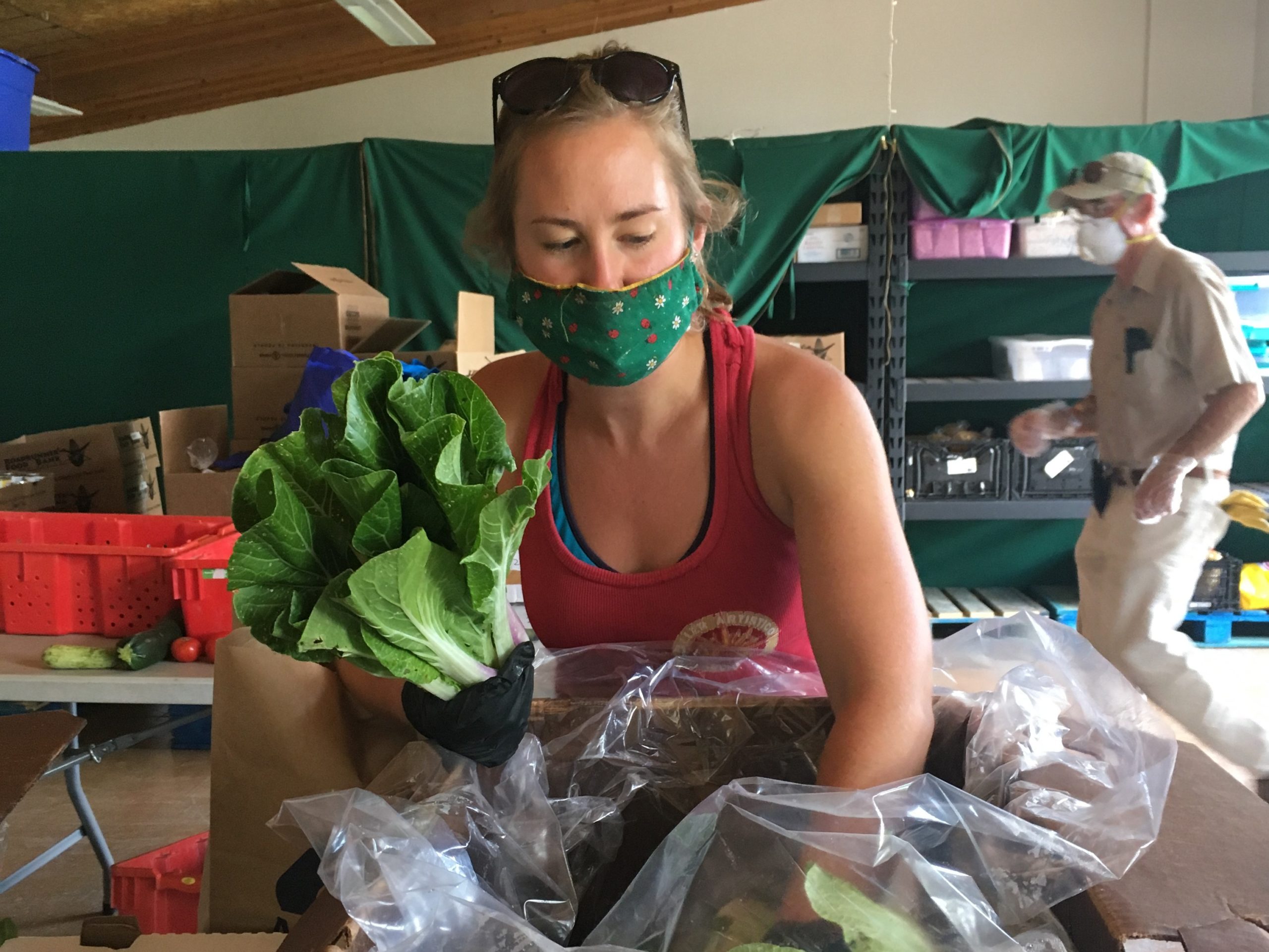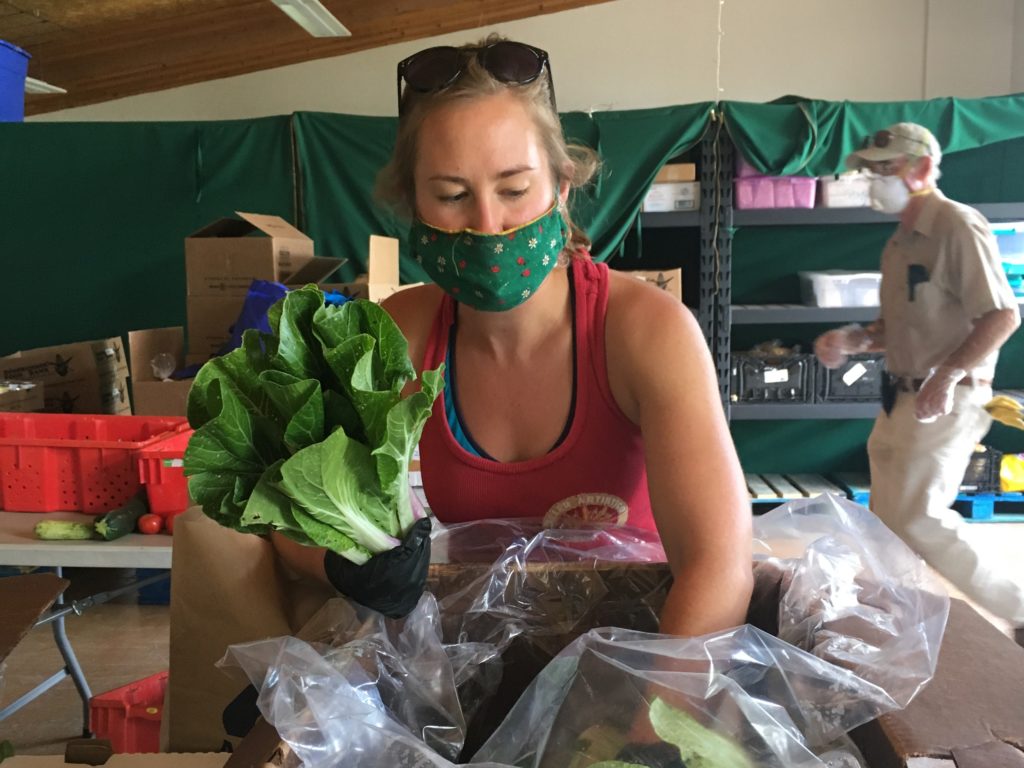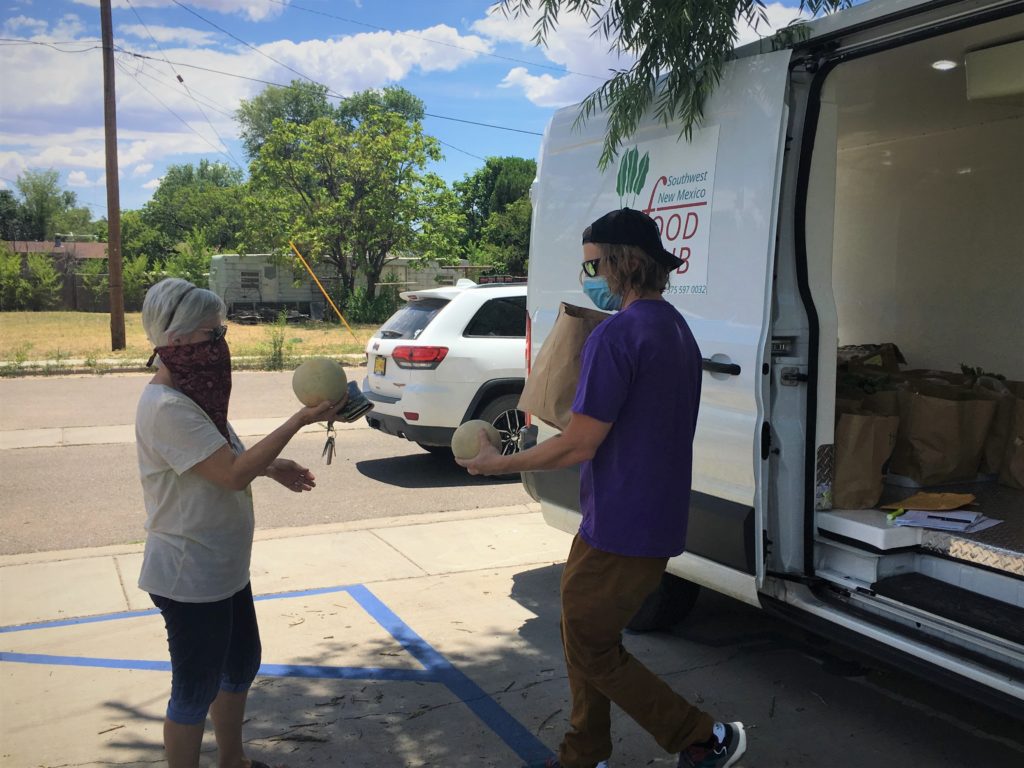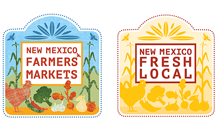
With a $10,000 grant from the New Mexico Farmers’ Marketing Association’s (NMFMA) COVID-19 Local Food Supply Chain Response Fund, the National Center for Frontier Communities (NCFC) responded to the pandemic last summer by forging an aggregated CSA (community supported agriculture) to support farmers, families in need, and food pantries in the Silver City region’s local food economy. The CSA ran for 10 weeks (from June to August in 2020) and was able to purchase over 1,000 pounds of food to fill weekly produce boxes for about 40 people and help stock local food pantries.
In addition existing challenges unique to frontier communities like limited human services and long travel distances to urban areas, Ben Rasmussen, program manager for the NCFC Southwest New Mexico Food Hub, explained that the 2020 market closures “were stressful for many growers,” and the demand on food pantries increased while the quality and quantity of food they received decreased.
“I do believe that in each crisis there is an opportunity,” Rasmussen said. “The pandemic caused a lot of people to think about how fragile our whole system really is.”

Camille Horton, volunteer, packs bok choy from Pata Viva Farm in Las Cruces.
The NCFC’s pilot CSA provided revenue for more than 20 farmers by purchasing a variety of local produce to create boxes for weekly distribution to over 40 local families, as well as supplying produce to food pantries in Catron, Hidalgo, and Luna counties. Through the CSA, the NCFC ensured access to healthy, nutrient-dense food for low-income families hardest-hit by the public health crisis and offered consumers a food shopping option that met public health restrictions with its no-contact, drive-through pick-up model. A variety of seasonal produce and even grains came from several local farms such as Rockhouse Farm, OG Farms, De Colores, Grace’s Garden, Pata Viva Farm, Gone Fishin’, and Enchanted Valley Farms.
The NCFC’s work includes both local programs and national advocacy designed to bolster food and health systems in small, rural communities across the country designated as “frontiers” by the United States Department of Agriculture — which generally includes very low population density communities with limited access to healthcare and other services. Rasmussen explained that the NCFC’s local food initiatives include working with farmers to help ensure needed access to health, food, and education services is available in frontier communities.

On the right, Ben Rasmussen, National Center for Frontier Communities program manager, hands out cantaloupe from Rockhouse Farm.
Moving forward, Rasmussen plans to continue to strengthen both the local food system and community resilience through the NCFC food hub’s work. He believes the many challenges associated with the pandemic have helped people realize the importance of supporting their local food systems. Due to positive response from the pilot CSA, Rasmussen shared the NCFC will be launching a CSA in early September continuing to incorporate produce from local growers, offering Supplemental Nutrition Assistance Program (SNAP) and Double Up Food Bucks benefits to low-income and remote consumers, and establishing local food access in Silver City and surrounding areas.
“If we can come out of this continuing to grow and sell food, especially making sure this food makes it into the homes of those in need, then I think we’ll be better off as a community.”
This story is part of a series featuring the many farmers, ranchers, nonprofit organizations, and collaborative groups who received grants via the NMFMA’s COVID-19 Local Food Supply Chain Response Fund. The Fund was designed to reduce economic hardship caused by market disruptions linked to the ongoing public health crisis and accelerate a sustained and equitable recovery among farmers and low-income communities. In total, $484,653.89 was distributed in 2020 to 100+ producers and groups. The tireless work and generous spirit of these individuals help solidify New Mexico’s local food system and ensure food access by those in need during an historic, global health crisis. Visit the NMFMA website to learn more and to contribute to the Fund.
By NMFMA Staff | August 2021

